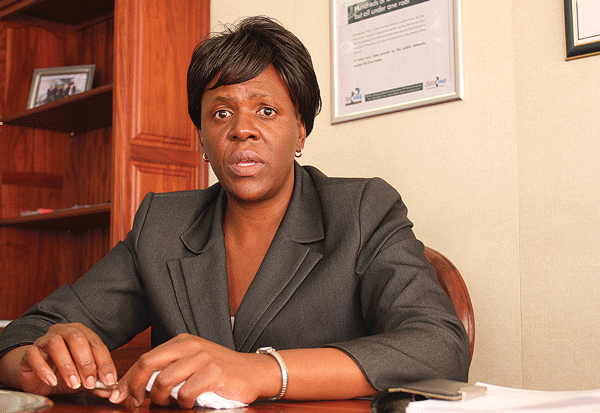
BY TAURAI MANGUDHLA
STATE-run mobile telecoms firm NetOne says a debt restructuring programme has been underway since government announced plans to bring private investors into the operation in 2018 under an ambitious plan to privatise Zimbabwe’s oldest mobile phone company.
Acting CEO Raphael Mushanawani told Standardbusiness last week that NetOne, tired of playing hide-and-seek with creditors, had made fresh commitments to pay up debts and clean up the assets to attract investors.
Under a strategy unveiled by Finance minister Mthuli Ncube in 2018, government would be scouting for investors to recapitalise the combined assets of NetOne and the landline giant TelOne.
The plan was to make sure the combined assets were attractive for suitors to inject capital and give the companies fresh impetus for growth following years of troubles.
Mushanawani said he was confident the strategy unveiled under the Medium Term Plan (MTP) would help the operations end a lengthy investment drought.
“The inclination, therefore, is to acquire assets with higher return for which telecommunications, media and technology are poised to even grow further in the near future with the exciting work happening on the fourth industrial revolution (and) bundling the two would, therefore, be lucrative for the investor,” he said.
“It (the strategy) definitely will stand as an attractive offer with a broader asset base and opportunity for higher returns.
- Chamisa under fire over US$120K donation
- Mavhunga puts DeMbare into Chibuku quarterfinals
- Pension funds bet on Cabora Bassa oilfields
- Councils defy govt fire tender directive
Keep Reading
“Our confidence comes from the fact that, this will mean a new, much-needed investment in the business and privatisation with the right commitment, will bring great business performance and efficiencies.”
Mushanawani said progress had been made with regard to providing the necessary information required for investment to take place.
“This approach was very deliberate since we realised that you cannot grow when all you are constantly doing is running away from creditors and the work is not yielding positive results,” he added.
Efforts to get a comment from TelOne CEO Chipo Mutasa were fruitless.
But Ncube last week said he was happy with progress so far.
“On TelOne and NetOne, the government made a decision to offer the two entities as a single package and is also considering their partial privatisation,” said Ncube.
NetOne had legacy debts amounting US$74 million to local financial institutions as of December 2020, according to official data.
The data says TelOne’s legacy debts stood at US$380 million at the end of 2018.
Government has been struggling to capitalise the two companies especially given the huge capital demands in the tech industry.
However, the government a few years back snapped a 60% stake in crumbling mobile network operator Telecel.
Telecel is on its knees and suffering all sorts of operational challenges.
Speaking around the restructuring of all parastatals in general, Ncube said the government had affirmed its commitment to institute comprehensive state enterprises and parastatals reforms through the approval of the State Enterprises Reform Framework on April 10, 2018, which policy position had been a key focus area in the Transitional Stabilisation Programme and the National Development Strategy 1.











